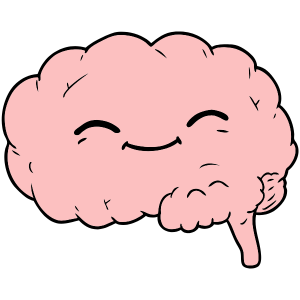What is a neuropsychologist?

A neuropsychologist focuses on understanding how the brain works and things that impact on a person’s thinking skills (cognition), behaviour and emotional wellbeing.
A neuropsychologist uses tests, questionnaires and observations to measure abilities such as intelligence, language, memory, attention, processing speed, executive functions, academic abilities and behaviour. A neuropsychologist can also assist with cognitive, behavioural and mood challenges in the context of altered brain function.
Typically, a neuropsychologist has undertaken a minimum of six years of university studies (including a postgraduate Masters degree, Doctorate or PhD) and two years of training as a psychologist in order to obtain practice endorsement as a neuropsychologist.
When is a neuropsychology assessment indicated?
You might like to consider assessment if difficulties are being experienced with thinking skills, learning, memory and behaviour for a variety of reasons.
The tests used are selected from a range based on a person’s age, history and difficulties.
Common referral reasons include:
- To explore barriers to learning and to make recommendations on how to best address them
- To determine capacity to make medical, lifestyle or financial decisions
- To determine support needs
- To measure progress over time when a person has previously had a neuropsychology assessment
- To determine intelligence (IQ) level to support applications, such as for the Program for Students with Disabilities (PSD) and the National Disability Insurance Scheme (NDIS)
- To determine a person’s capacity for returning to driving and/or work following a brain injury
What does a neuropsychology assessment involve?
- An initial consultation with the client/parents or caregivers where the neuropsychologist will gather information about background history (such as development and medical history), current circumstances and current challenges.
- For child assessments the neuropsychologist is also likely to contact a child’s school to gather information about their academic performance, learning challenges, social skills and behaviour at school. The information-gathering process allows the neuropsychologist to understand the context of the child’s challenges, explore things that might be impacting on their thinking and learning, and to make recommendations tailored to the child.
- The testing process typically takes about three hours, but varies depending on the individual. For a child, this is typically broken up over two sessions (which can be done over the course of one day or on different days if needed). In order to determine a person’s cognitive strengths and weaknesses, they will complete a range of pen and paper type tasks with the neuropsychologist. Most adults find the testing to be interesting and children often describe it as being fun!
- The neuropsychologist will then put all the information together to determine how a person’s thinking and learning compares to most other people their age and also to determine what the person’s strengths and weaknesses are. The neuropsychologist will put all relevant information into a report (including background information gathered at the initial consultation, testing results, opinion and recommendations) and will chat with the person or parents about who should receive a copy of the report (such as a general practitioner, paediatrician, school etc).
- Feedback and problem-solving session, where the neuropsychologist will meet with the client (or the parents in the case of a child). At this session, the neuropsychologist will discuss the results of the testing, what that means for the person in everyday life and will then do some problem-solving with the person/parents as to the best way forward for working with the person’s challenges. The focus of this session is to help the parents and child or person to apply the assessment findings to their real life wants and needs. In the case of a child assessment, the neuropsychologist may also work with the school to assist in developing learning plans and strategies to support a child in achieving their full potential
What tests do neuropsychologists use with children?
Neuropsychologists use a range of pen and paper type tasks, including the Wechsler Intelligence Scale for Children Fifth Edition, the Wechsler Individual Achievement Test Third Edition and many others. The tests used with a child are selected from a range based on a child’s age, history and difficulties. The test materials are often fun for the child to engage with as they often include puzzles or quiz-type tasks. Younger children are sometimes concerned what might be involved and are reassured when they learn there are no painful or invasive procedures like needles or electrodes.
Perhaps a child is experiencing challenges but a neuropsychology assessment isn’t necessary?
Sometimes a formal neuropsychological assessment is not necessary, but the parents and/or child can still benefit from meeting with the neuropsychologist for some problem-solving!
The neuropsychologist and the parents can put their heads together based on what the neuropsychologist knows about brains and what the parents know about the child, and together they can brainstorm some ideas for how to work around whatever challenges the child faces. This will have a particular focus on the child’s strengths and what is important to the family. Common referrals for problem-solving sessions include planning, organisational and attention difficulties at school, behavioural difficulties, memory difficulties and fatigue management.
How to refer for neuropsychology services
A good place to start is to talk with your general practitioner (GP) and/or paediatrician.
If you’d like more information, you can contact Chris Mackey and Associates directly on (03) 5224 1222 or [email protected]
What else is important to know?
There is no Medicare rebate for neuropsychology assessments. A portion of assessments and consultations may be covered under private health insurance, but it is recommended that you check with your provider first. NDIS funding can usually be used to fund neuropsychology assessments.
A neuropsychology assessment is an investment and is time-consuming. While the face-to-face contact with the neuropsychologist only takes around three hours, the neuropsychologist also spends many hours gathering background information, scoring the tests, interpreting the test scores and writing the report.
Where possible, it is best to do neuropsychology assessments in person. However, much of the initial consultation can be conducted via telehealth (such as Zoom or telephone). In most cases, the assessment process can be initiated within two weeks of referral.



